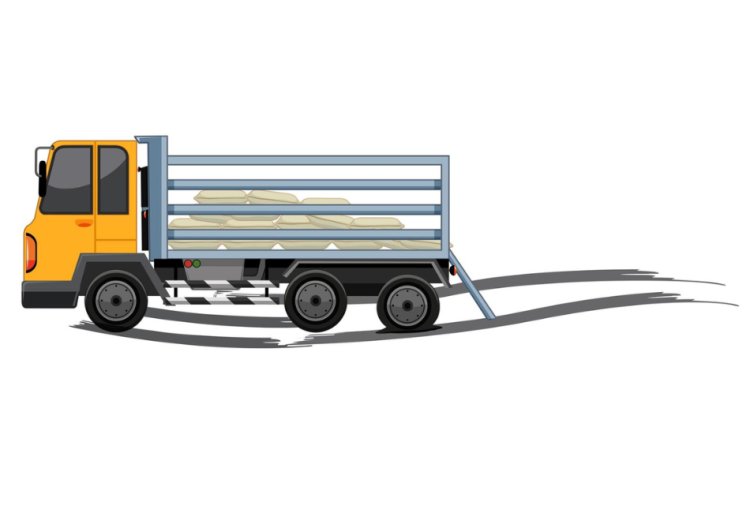Why Is My Farm Trailer Pulling Unevenly?
Is your farm trailer pulling unevenly? Discover the common causes—like axle misalignment, tyre issues, and load imbalance—and learn expert tips to fix them. Ensure safer, smoother towing with our complete guide.

Farm trailers are indispensable on agricultural properties. From hauling hay to transporting livestock or equipment, they endure tough terrains and heavy loads daily. But when a trailer begins to pull unevenly—veering to one side, causing vehicle strain, or making unusual noises—it can become more than a minor inconvenience. Left unchecked, this issue can compromise safety, efficiency, and even the longevity of your vehicle and trailer setup.
If you’ve noticed your farm trailer pulling unevenly, understanding the root causes is the first step to fixing the issue. This article will delve into the most common reasons and provide actionable solutions to get your trailer running smoothly again.
Common Causes of Uneven Trailer Pulling
1. Uneven Tyre Pressure
One of the most overlooked yet common reasons for a trailer pulling to one side is uneven tyre pressure. If one side has significantly lower pressure than the other, it affects the balance and rolling resistance, causing the trailer to drift.
Solution:
Regularly inspect and inflate trailer tyres to the manufacturer’s recommended PSI. Invest in a reliable tyre pressure gauge and make this part of your routine maintenance.
2. Axle Misalignment
Just like a car, a trailer's axle must be properly aligned. A misaligned axle can cause the trailer to skew while in motion, increasing tyre wear and reducing control.
Solution:
Take your trailer to a professional who can check the alignment using specialised tools. Axle realignment is typically not a DIY job but is essential for smooth towing.
3. Worn or Damaged Suspension Components
Suspension parts like leaf springs, hangers, and shackles play a critical role in load distribution and balance. If these components are damaged or worn unevenly, they can make the trailer lean or pull while moving.
Solution:
Inspect the suspension system for cracks, rust, or visible wear. Replace any damaged parts promptly to restore stability.
4. Imbalanced Load
One of the simplest yet most impactful causes is an unbalanced load. If cargo is unevenly distributed—either side-to-side or front-to-back—it changes the centre of gravity and creates a pulling effect.
Solution:
Load your trailer evenly. Place heavier items over the axle and distribute the weight symmetrically. Use tie-downs to keep the load secure and in place during transit.
5. Bent Frame or Chassis
Trailers are often subjected to heavy-duty tasks, and over time, structural damage like a bent frame can go unnoticed. A warped frame can result from an accident, overloading, or long-term wear.
Solution:
Conduct a visual inspection. If the trailer doesn’t sit level when parked on flat ground or if there are signs of bending, consult a professional welder or trailer repair specialist for a frame assessment.
6. Brake Issues
If your trailer has electric or hydraulic brakes and they’re not synchronised properly, they can activate unevenly. This causes drag on one side and pulls the trailer.
Solution:
Check the brake controllers and wiring. Ensure the brake pads are wearing evenly and adjust them if necessary. Consult with a trailer mechanic if you suspect more complex issues.
7. Uneven Tyre Wear
Sometimes the trailer pull is a symptom of deeper problems, signaled by irregular tyre wear. This can result from poor alignment, faulty suspension, or even inconsistent tyre brands or sizes.
Solution:
Rotate your tyres regularly and always use the same type and size across axles. Uneven tyre wear is both a symptom and a cause—so act on it quickly.
Best Practices for Trailer Maintenance
To prevent your trailer from pulling unevenly, follow these best practices:
- Routine Inspections: Before and after use, check the tyres, suspension, hitch, and frame.
- Weight Distribution: Always load evenly and secure items to avoid shifting in transit.
- Annual Servicing: Schedule professional inspections at least once a year, especially before peak farming seasons.
- Storage: Store trailers on flat, dry ground when not in use to prevent warping or tyre damage.
When to Seek Professional Help
If you’ve tried the above solutions and your trailer is still pulling unevenly, it’s time to consult a professional. Persistent issues could indicate deeper structural or mechanical problems that require expert attention.
Look for service providers who specialise in agricultural or heavy-duty trailers. They’ll have the tools and experience to diagnose issues more accurately than general vehicle repair shops.
Summary
Uneven trailer pulling isn’t just an inconvenience—it’s a warning sign that something isn’t right. Whether it’s tyre pressure, axle alignment, suspension wear, or load imbalance, the cause can often be pinpointed and corrected with routine checks and timely maintenance. Staying proactive not only improves trailer performance but also enhances safety on the road and extends the life of your valuable farming equipment.
So, next time your farm trailer doesn’t tow quite right, don’t just power through it—pause, inspect, and correct. It might just save you a costly repair down the line.
What's Your Reaction?
















